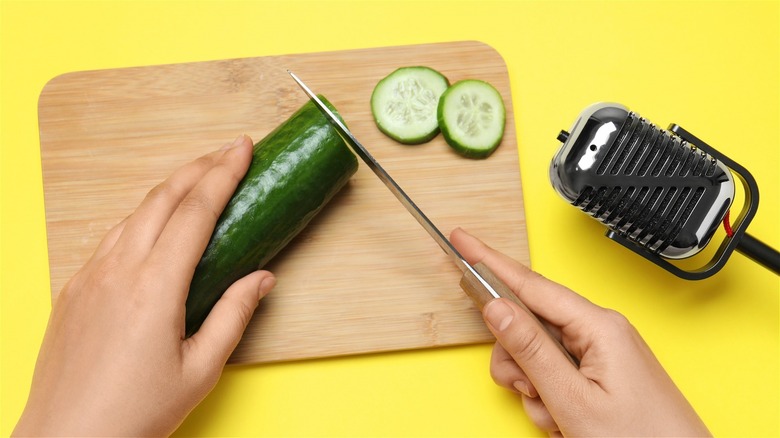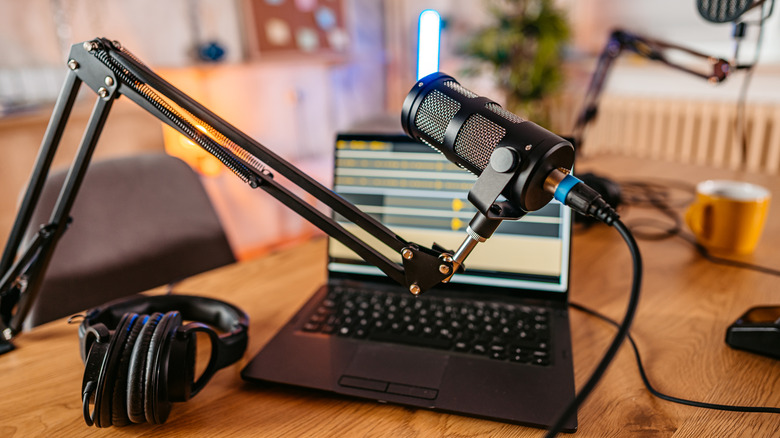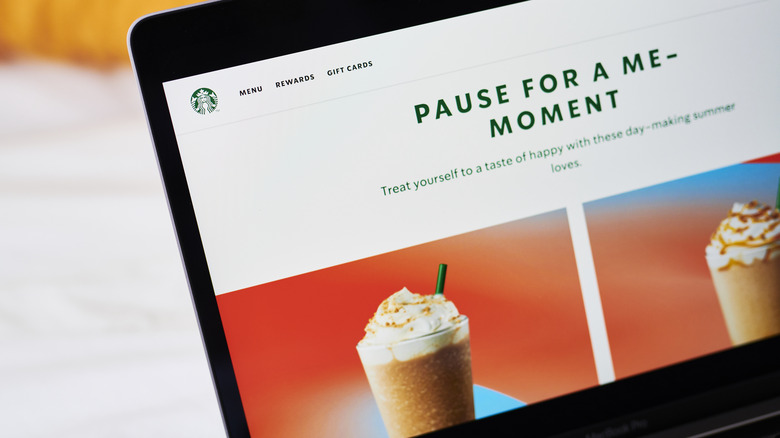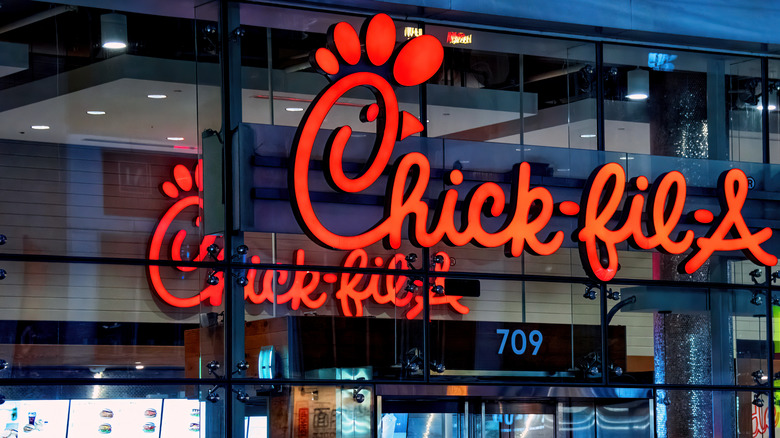The Rise Of Fast Food And Grocery Chain Podcasts, Explained
No matter what fast food or grocery chain, there's an image that comes to mind when you hear a brand name. For Chick-fil-A, maybe it's the quirky cow from their billboards. For Whole Foods, it could be their signature shade of green or the number 365. And for McDonald's, it's almost certainly the iconic Golden Arches. None of this is by accident. It all comes down to clever branding and carefully crafted marketing strategies. Just like when you picture certain images when you hear brand names, you may also hear jingles like "I'm Lovin' It" in your head when you think of certain food establishments.
Audio advertising and the use of auditory marketing queues have been around for quite some time. Factoring in the steady growth and ubiquity of podcasts, it's no surprise that fast food and grocery chains are taking advantage of the popular audio format. Building off this concept, companies investing their resources to produce their own content makes sense. Cutting out the middlemen by using free and accessible platforms like Apple Music and Spotify is a natural progression in the marketing and branding journey for major fast food and grocery chains looking to connect with their audiences.
Why these companies are looking to podcasting
To understand the rise of fast food and grocery chain podcasts spearheaded by such companies as Starbucks, Wingstop, and Trader Joe's, it's important to understand the proliferation of podcasting in general. Podcasts have been around since the aughts but started gaining steam after well-known celebrities and investments from companies like Spotify became involved. In 2022, it was projected that over 420 million people worldwide were tuning into podcasts regularly, which translates to about 20% of internet users. That's a lot of time and attention being paid to such an easily accessible medium.
Podcast audiences are also trending younger. Per Insider Intelligence, about 39% of adults between 18 and 34 are listening to podcasts monthly via their smartphones. This is a very attractive demographic for fast food and grocery companies and represents the potential growth these companies are banking on. Ad spending in the U.S. podcasting industry is nearing 2 billion dollars, and the food brands that can afford to do so are aiming to control their destinies by producing podcasts revolving around their brands, employees, and products.
Official fast food and grocery chain podcasts
One food chain that exemplifies how podcasts can be used effectively to grow a brand is Crumbl Cookies. On its show, "The Crumble Mumbl Podcast,” available on Apple Podcasts, the company showcases its employees, features influencers, and, of course, makes plenty of announcements regarding new products and stores.
Starbucks (a brand that probably doesn't need the extra help) has a podcast called "The Starbucks Daily." The show does things a little differently than Crumbl, instead providing inspirational clips from other podcasts to enhance the experience app users have when they open up to order their beverages. It also serves as a platform to feature advertising content relevant to customers.
One grocery chain that also has a foot in the podcast arena is Trader Joe's. "Inside Trader Joe's" is available on most major podcast platforms and serves as a way for the company to connect with its loyal customers. From new products to why it's so hard to find parking at stores, Trader Joe's is giving shoppers an inside look at its brand and strengthening its company-consumer connection.
The role of unofficial podcasts
The beauty of podcasts is that anybody can make them, and that's exactly what Alison Storm, host of "My Pleasure: The Unofficial Chick-fil-A Podcast," does on her show. Not officially sanctioned by the fast food giant, the show is available on platforms like Apple and Spotify. Storm produces the show on her own and interviews a plethora of guests who share their stories and love for the chicken sandwich icon. While the company has no direct control over the show, this unofficial podcast does a major service for the fast food chain by highlighting the restaurant, its food, and its culture.
Other unofficial podcasts include amateur shows that focus on fast food and grocery chains as a whole, serving as review shows that go out and taste and compare different products. These podcasts are largely driven by personalities rather than marketing strategy or corporate oversight, so hosts are free to discuss what food they want. Despite typically not having any affiliation with fast food or grocery chains, these unofficial shows still offer a great service in the scheme of these company's marketing plans. Every time a product gets reviewed, praised, or criticized, listeners of these shows hear about it and want to try it for themselves. As the saying goes, there's no such thing as bad press — especially when that many people are listening.



